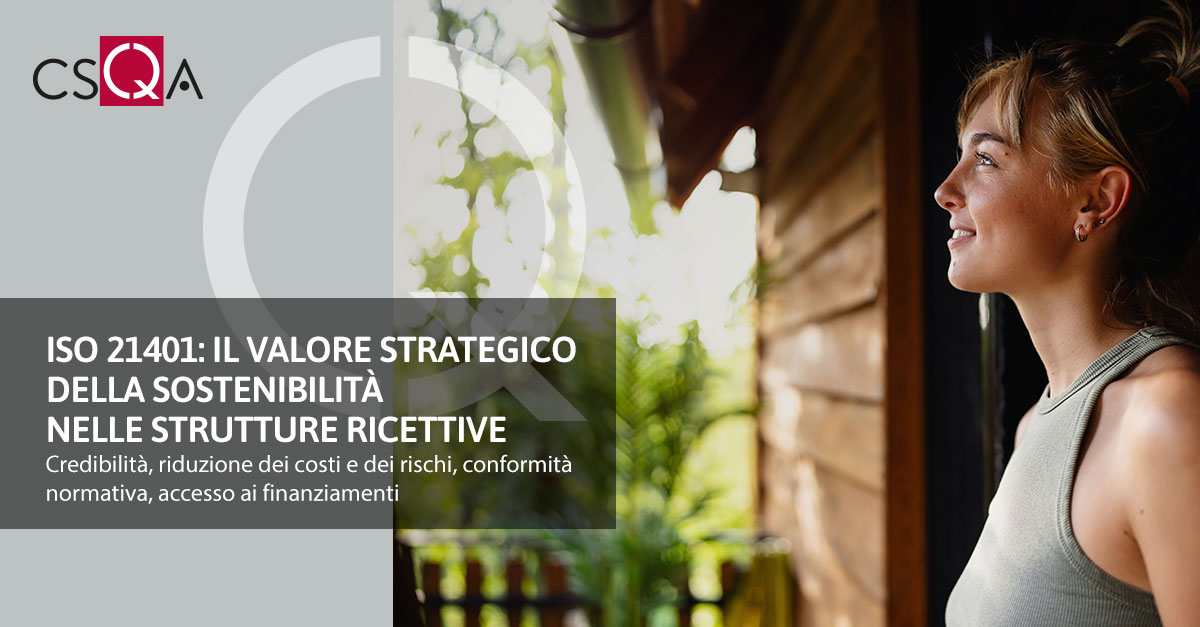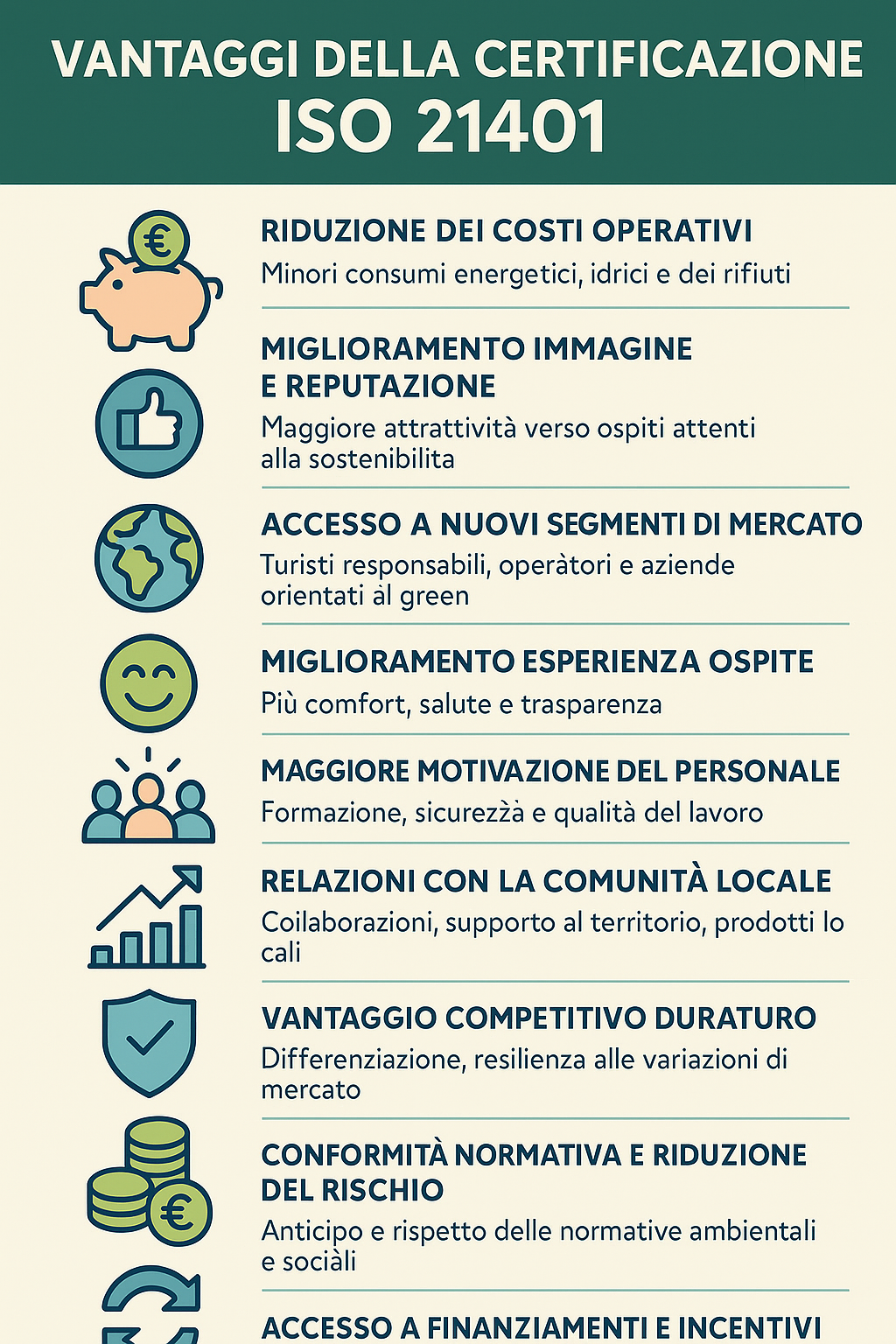 Sustainability is no longer a trend, but a key competitive factor for hotels, resorts, B&Bs, campsites and farmhouses .
Sustainability is no longer a trend, but a key competitive factor for hotels, resorts, B&Bs, campsites and farmhouses .Travelers demand responsible accommodations, booking platforms reward those who reduce impacts, companies choose ethical and transparent partners, and territories are increasingly sensitive to tourism management.
In this scenario, ISO 21401 certification emerges as a fundamental tool for driving change and gaining a real advantage in the market.
Why should a hospitality facility become certified?
Credibility
First of all, a certified structure gains authority and credibility in the sustainability market.Many organizations talk about sustainability, but few demonstrate it with measurable facts.
ISO 21401 offers objective recognition, based on an international standard, which attests that the structure:
- manages environmental impacts in a controlled manner,
- protects the staff,
- engages guests,
- contributes to the local community,
- It continuously improves.
Cost reduction 
Furthermore, the implementation of this standard allows for a reduction in operating costs.Certification isn't just a reputational investment: it's a concrete way to cut costs:
- lower energy consumption (LED, automation, scheduled maintenance),
- reduction of water waste,
- smart waste management,
- laundry optimization,
- more efficient use of chemicals.
Market expansion
Being able to communicate sustainability certification gives access to a wider and more qualified audienceThe demand for sustainable tourism is growing rapidly.
According to major trends , 70% of European travellers prefer properties with green policies , and companies choose certified hotels for meetings and business travel.
The OTAs themselves (Booking, Expedia) are increasingly rewarding sustainable properties, generating a virtuous circle , as sustainability management leads to an improvement in the guest experience and satisfaction.
A sustainable structure also tends to be a more well-maintained, cleaner, and more attentive structure.
Staff well-being
Those who benefit from a sustainable structure are first and foremost the guests, but also the staff.The law in fact dedicates a significant section to: contractual equity, training, inclusion, ergonomics, safety, and work organization.
Investing in people's well-being means improving the internal atmosphere and consequently ensuring better service.
Relations with the local community
ISO 21401 promotes tourism that generates authentic value in the territory , encouraging:- collaborations with local producers and artisans,
- cultural and educational activities ,
- promotion of authentic traditions and experiences,
- contributions to the economic development of the community.
Regulatory compliance and risk reduction
A structured system allows you to anticipate problems and easily demonstrate compliance in the event of audits.The standard helps to prevent risks related to:
- waste management,
- workplace safety ,
- use of chemicals ,
- environmental requirements,
- management of guests in vulnerable situations.
Continuous improvement and strategic management
ISO 21401 is a management system that allows you to measure your impacts, define annual objectives, monitor KPIs, correct critical issues, and continuously improve.Access to funding and incentives
Many public and private tenders reward or require certified sustainability.ISO 21401 can give additional scores in:
- funds for energy efficiency,
- contributions for the renovation of structures,
- European projects on sustainable tourism,
- regional tenders.